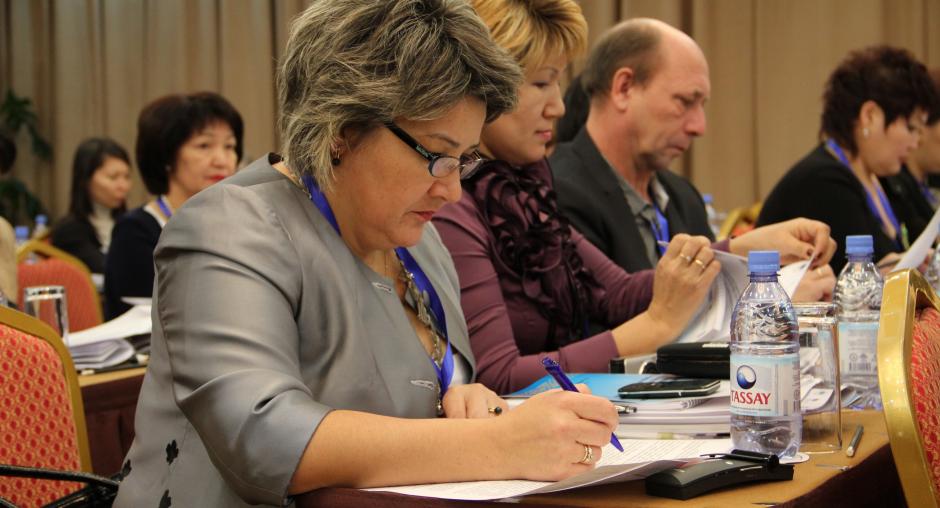OSCE Centre in Astana supports conference on domestic violence

ASTANA, 25 November 2011 – A conference to review the implementation of Kazakhstan’s 2009 Law on the Prevention of Domestic Violence and discuss possible amendments began in Astana today.
The meeting was organized by the OSCE Centre in Astana in co-operation with the National Commission on Women and Family-Demographic Policy, UNDP, UN Women, and the British Embassy in Astana. The conference brought together some 75 officials from the Presidential Administration, the Supreme Court, the General Prosecutor’s Office and the Ministries of Labour, Education, Justice, Internal Affairs and Health, as well as regional representatives of the commissions on women and family-demographic policy. Representatives of the non-governmental sector, international organizations and diplomatic missions are also taking part.
The conference participants will discuss the progress and challenges in implementing the law and present good practices in delivering social and rehabilitation services on the central and local level. The results of several local NGOs’ efforts to monitor the law’s implementation will be shared at the conference, as will recommendations for the further improvement of domestic violence legislation.
Jeannette Kloetzer, the Acting Head of the OSCE Centre in Astana, said: “The OSCE Centre in Astana has been actively co-operating with the parliament, government and civil society in drafting, promoting and monitoring the implementation of domestic violence legislation. We are ready to continue supporting Kazakhstan’s legislative and practical efforts to prevent and combat domestic violence.”
Zhakip Assanov, a Member of the National Commission on Women and Family Demographic Policy under the President of Republic of Kazakhstan and Deputy of the 4th convocation of Parliament, said: "A functioning mechanism to protect victims and prosecute offenders is an integral part of promoting gender equality and ensuring security. The key stakeholders, such as law enforcement, health care, social service and education agencies, as well as the non-governmental sector, must act in co-ordination in order to prevent and combat domestic violence.”
The event was held on the occasion of the International Day for the Elimination of Violence against Women and is part of the OSCE Centre's ongoing efforts to promote gender equality and combat domestic violence.
